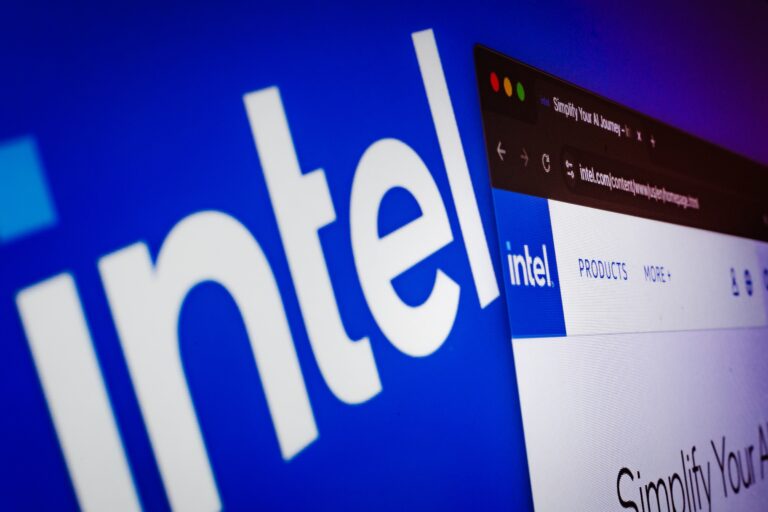US Secretary of Commerce Howard Lutnick announced on Friday that Washington will take a 10% stake in Intel.
“This historic agreement strengthens American leadership in semiconductors. It will grow our economy and secure our technological edge,” Lutnick wrote on X. He posted the message with a photo of himself alongside Intel CEO Lip-Bu Tan.
President Donald Trump revealed the deal earlier in the Oval Office. He described it as “a great deal for them.”
Shares of the Santa Clara-based chipmaker climbed more than 5% on Friday.
Intel confirmed that the US government will invest $8.9bn (£6.6bn) in Intel common stock.
Redirected funding supports investment
Intel said the funds will come from grants already awarded but not yet delivered. That includes money allocated under the CHIPS and Science Act, passed during President Joe Biden’s administration.
“As the only semiconductor company that conducts leading-edge R&D and manufacturing in the US, Intel remains committed,” Tan said. “We will ensure the world’s most advanced technologies are American made.”
Tan praised Trump’s commitment to boosting domestic chipmaking. He said the policy drives “historic investments in an industry tied to security and the economy.”
The CHIPS Act seeks to bring semiconductor manufacturing back to the United States.
Intel struggles to regain ground
Intel has faced challenges in expanding its chip capacity. It lags far behind Nvidia, whose market value has surpassed $4tn while Intel’s remains near $100bn.
Once a symbol of Silicon Valley’s strength, Intel lost ground in mobile computing. It also failed to secure dominance in artificial intelligence, a field where Nvidia excels.
Trump targets Intel chief
In recent weeks, Trump sharply criticised Intel and urged Tan to resign. He accused the CEO of questionable ties to China.
The president labelled Tan “highly conflicted” over alleged investments in firms connected to the Chinese military.
Tan rejected the accusations as “misinformation” in a note to employees. He defended his record, insisting he had always followed strict legal and ethical standards.
Tan, a US citizen, was born in Malaysia and raised in Singapore. American law permits investment in Chinese firms.
Trump’s attack followed a letter from Republican Senator Tom Cotton to Intel’s board. Cotton raised concerns about Intel’s ability to manage taxpayer funds responsibly and comply with security rules.
Following the criticism, Tan met Trump at the White House.
White House calls move unprecedented
Press Secretary Karoline Leavitt described the proposal as “a creative idea that’s never been done before.”
Reports said the Trump administration also ordered Nvidia and AMD to hand over 15% of revenue from AI chip sales to China.
Jacob Feldgoise, Senior Data Research Analyst at Georgetown University, compared the Intel stake to earlier grant funding.
“It serves the same purpose,” Feldgoise said. “It shows a stronger government role in markets to secure economic and security goals. The aim is regaining leadership in chip production.”
The deal is unusual in the modern era but not without precedent.
Lessons from earlier government stakes
During the 2008 financial crisis, Washington took a majority share in General Motors as bankruptcy loomed. The government later exited, recording a $10bn loss.
Feldgoise pointed out that Trump’s administration adopted a similar approach earlier this year with MP Materials. The Nevada-based company extracts rare earth metals.
That agreement drew criticism from watchdog groups after it was revealed that the Department of Defense relied on a Cold War-era law to avoid procurement rules.


